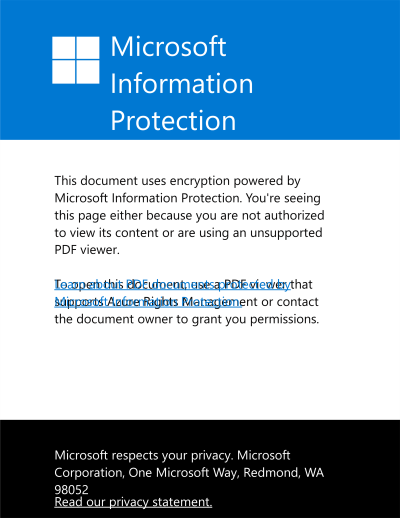Sunday Poster Session
Category: Small Intestine
P1282 - An Uncommon Culprit: Occlusive Acute Mesenteric Ischemia Secondary to Internal Hernia
Sunday, October 22, 2023
3:30 PM - 7:00 PM PT
Location: Exhibit Hall

Has Audio

Adrian Chico, MD
VA Caribbean Healthcare System
San Juan, PR
Presenting Author(s)
Adrian Chico, MD, Jose Martin-Ortiz, MD, FACG
VA Caribbean Healthcare System, San Juan, Puerto Rico
Introduction: Acute mesenteric ischemia (AMI) is a rare but potentially life-threatening condition characterized by a sudden reduction in blood flow to the small intestine, which can lead to bowel infarction and necrosis. While arterial-venous thrombosis is a well-known cause of occlusive AMI (67 to 95 %), there are other etiologies that can result in this subtype of catastrophic event. Internal hernia (IH), defined as the protrusion of abdominal viscera through a peritoneal or mesenteric aperture, represents one such uncommon cause. This case report highlights an interesting instance of occlusive AMI secondary to an internal hernia, emphasizing the importance of considering IH in the differential diagnosis when assessing patients with acute mesenteric ischemia
Case Description/Methods: We present the case of a 77-year-old male patient with a significant history of chronic smoking, hypertension, and no previous abdominal surgeries. The patient presented with a sudden new onset of diffuse abdominal pain that had started one day prior to admission. Initial laboratory findings revealed neutrophilic leukocytosis, metabolic acidosis, and elevated lactate levels. Abdominal CT with contrast demonstrated a closed-loop obstruction with no visualization of patent mesenteric vascular structures. As a result, the patient underwent an emergent exploratory laparotomy, which revealed two contiguous luminal points of obstruction through a physiological mesenteric aperture, leading to frank ischemic necrosis. Resection of 216 cm of small bowel was performed. Workup for coagulopathy and transthoracic echocardiogram yielded no diagnostic findings.
Discussion: AMI is a life-threatening condition associated with high mortality rates, particularly when bowel infarction occurs. While arterio-thrombus events are the predominant cause of occlusive AMI, it is important to consider internal hernia as a differential diagnosis, especially in patients without a history of previous surgery or trauma and negative workup for arterio-thrombus etiology, as in the case of this patient. Internal hernias can lead to strangulation and ischemia of the affected loops, posing a surgical emergency that requires prompt recognition and management. Although rare, internal hernia should be kept in mind as an important differential cause of acute mesenteric ischemia to ensure timely management and reduce morbidity and mortality.
Disclosures:
Adrian Chico, MD, Jose Martin-Ortiz, MD, FACG. P1282 - An Uncommon Culprit: Occlusive Acute Mesenteric Ischemia Secondary to Internal Hernia, ACG 2023 Annual Scientific Meeting Abstracts. Vancouver, BC, Canada: American College of Gastroenterology.
VA Caribbean Healthcare System, San Juan, Puerto Rico
Introduction: Acute mesenteric ischemia (AMI) is a rare but potentially life-threatening condition characterized by a sudden reduction in blood flow to the small intestine, which can lead to bowel infarction and necrosis. While arterial-venous thrombosis is a well-known cause of occlusive AMI (67 to 95 %), there are other etiologies that can result in this subtype of catastrophic event. Internal hernia (IH), defined as the protrusion of abdominal viscera through a peritoneal or mesenteric aperture, represents one such uncommon cause. This case report highlights an interesting instance of occlusive AMI secondary to an internal hernia, emphasizing the importance of considering IH in the differential diagnosis when assessing patients with acute mesenteric ischemia
Case Description/Methods: We present the case of a 77-year-old male patient with a significant history of chronic smoking, hypertension, and no previous abdominal surgeries. The patient presented with a sudden new onset of diffuse abdominal pain that had started one day prior to admission. Initial laboratory findings revealed neutrophilic leukocytosis, metabolic acidosis, and elevated lactate levels. Abdominal CT with contrast demonstrated a closed-loop obstruction with no visualization of patent mesenteric vascular structures. As a result, the patient underwent an emergent exploratory laparotomy, which revealed two contiguous luminal points of obstruction through a physiological mesenteric aperture, leading to frank ischemic necrosis. Resection of 216 cm of small bowel was performed. Workup for coagulopathy and transthoracic echocardiogram yielded no diagnostic findings.
Discussion: AMI is a life-threatening condition associated with high mortality rates, particularly when bowel infarction occurs. While arterio-thrombus events are the predominant cause of occlusive AMI, it is important to consider internal hernia as a differential diagnosis, especially in patients without a history of previous surgery or trauma and negative workup for arterio-thrombus etiology, as in the case of this patient. Internal hernias can lead to strangulation and ischemia of the affected loops, posing a surgical emergency that requires prompt recognition and management. Although rare, internal hernia should be kept in mind as an important differential cause of acute mesenteric ischemia to ensure timely management and reduce morbidity and mortality.
Disclosures:
Adrian Chico indicated no relevant financial relationships.
Jose Martin-Ortiz indicated no relevant financial relationships.
Adrian Chico, MD, Jose Martin-Ortiz, MD, FACG. P1282 - An Uncommon Culprit: Occlusive Acute Mesenteric Ischemia Secondary to Internal Hernia, ACG 2023 Annual Scientific Meeting Abstracts. Vancouver, BC, Canada: American College of Gastroenterology.
